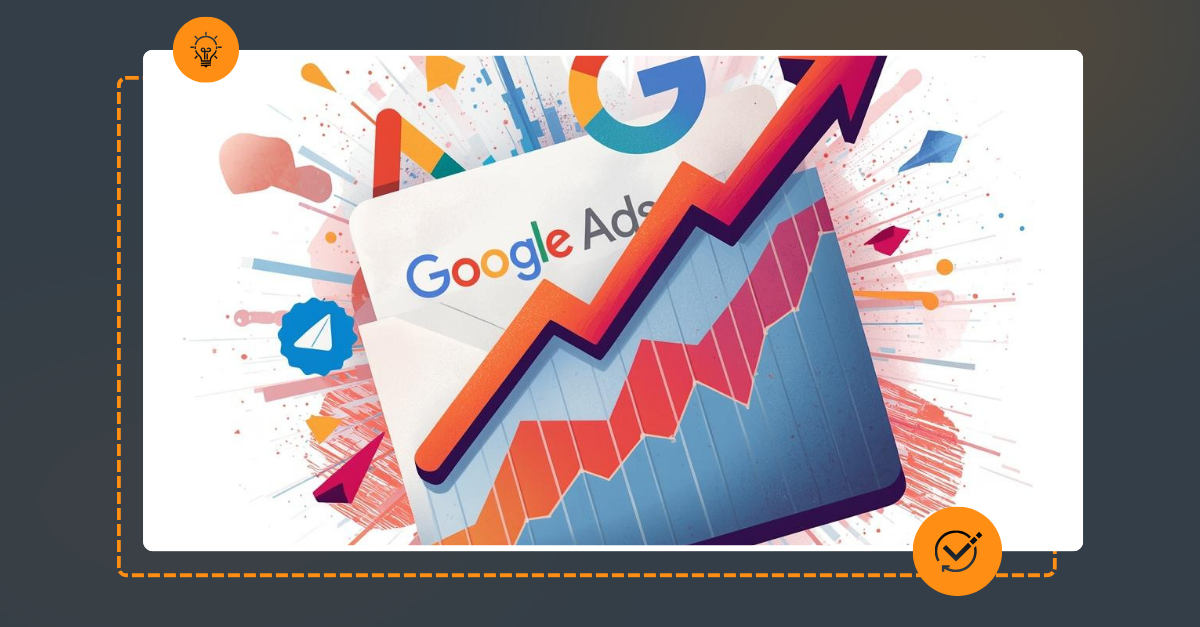When leaders think about barriers to growth, they usually point to competition, budgets, or shifting market dynamics. But what if the biggest obstacle isn’t external at all? What if the hidden growth killer is a trust gap quietly eroding credibility, relationships, and revenue?
That’s the premise behind a recent episode of Performance Delivered: Insider Secrets for Digital Marketing Success. We sat down with Kristin Oelke, founder of Bright Rock Services and author of Trust: Unlocking B2B Growth in Today’s AI World. Together, they explored how businesses can recognize trust erosion, measure it meaningfully, and rebuild it as a core part of strategy.
Trust Isn’t Assumed—It’s Earned
Executives often assume customers, partners, and employees trust them. Research says otherwise. Studies from Edelman and PwC show that skepticism is on the rise—accelerated by AI-driven information overload and self-education.
Today’s B2B buyers complete 60–70% of the buying process before ever speaking with sales. That means your public trust profile—the combination of case studies, third-party validation, analyst mentions, and customer advocacy—must stand strong long before you’re in the room.
Where Trust Breaks Down
Kristin shared the most common blind spots she sees:
- Customer satisfaction ≠ trust. A product can perform, but if service feels transactional, loyalty is at risk.
- Employee trust is overlooked. If your team doesn’t believe in your story, prospects won’t either.
- Inauthenticity gets punished. Buyers can sense when messaging doesn’t match reality, and their radar for inconsistency is sharper than ever.
“When authenticity is missing,” Kristin notes, “the audience assumes you’re covering up something deeper. That erodes trust even faster.”
Measuring Trust in Real Time
Unlike revenue or pipeline, trust can be difficult to quantify. Traditional surveys and 360 reviews are lagging indicators—by the time insights arrive, customers may have churned or employees disengaged.
The shift, Kristin argues, is toward real-time trust signals. Whether through instant feedback tools, proactive customer success outreach, or AI-driven sentiment analysis, the goal is to act before erosion becomes visible.
Case Studies: Trust in Action
Bright Rock Services has helped both startups and established players strengthen their trust profiles:
- CIS Group: After two decades as an MSP reseller, they pivoted into AI-driven cybersecurity. By repositioning their messaging and elevating customer stories, Bright Rock helped the company double engagement and inbound opportunities within months.
- Feedback Now: Though their technology was strong, their stories weren’t being told. By documenting real-world customer wins and amplifying them across channels, the company transformed its inbound pipeline and market credibility.
In both cases, trust wasn’t built overnight—but once it strengthened, growth followed.
The AI Paradox: Scaling Content Without Losing Credibility
AI tools make it easy to create content at scale. But Kristin cautions: speed doesn’t equal trust.
Instead of churning out polished “success stories,” she recommends telling the whole journey—the initial challenges, the messy middle, and the ultimate transformation. This honesty creates empathy and believability, ensuring that credibility grows alongside content volume.
Building a Culture of Trust
Perhaps Kristin’s most important point: trust is not a marketing campaign. It’s a business-wide strategy.
- Product must deliver on its promise.
- Customer success must prove ongoing value.
- Sales must advocate authentically, not just pitch.
- Employees must feel transparency and growth opportunities.
When trust is embedded across all three stakeholder groups—customers, employees, and investors—it becomes a true competitive advantage.
Final Thoughts
In today’s AI-driven, fast-paced B2B landscape, trust is both fragile and powerful. Companies that ignore trust erosion risk faster churn, weaker retention, and stalled growth. But those that proactively build credibility, authenticity, and transparency position themselves to win—especially when features and pricing are equal.
As Kristin put it: “Just because you can create faster doesn’t mean it has value. What builds trust is relevance, authenticity, and proof that you deliver.”
Episode Transcript
[00:00:00] Intro
This is Performance Delivered: Insider Secrets for Digital Marketing Success with Steffen Horst.
Welcome back to Performance Delivered: Insider Secrets to Marketing Success, the podcast where we dive into what’s driving results in today’s ever-evolving marketing landscape. I’m your host, Steffen Horst, and today we’re tackling one of the most overlooked yet powerful drivers of business growth: trust.
Too often, executives assume that customers and partners trust them. But what if that trust isn’t as strong or as real as they think? What if the biggest barrier to growth isn’t competition or budget, but the hidden trust gap that’s quietly eroding relationships and revenue?
To help us unpack this, I’m joined by Kristin Oelke, founder of Bright Rock Services, a fractional CMO company, and author of Trust: Unlocking B2B Growth.
[00:01:00] (Steffen Horst)
In today’s AI world, Kristin has helped fast-moving tech companies uncover blind spots, rebuild credibility, and turn trust into competitive advantage. Today we’ll explore where trust breaks down, how to measure it, and most importantly, how to build it back into the core of your business strategy.
[00:01:30] (Steffen Horst)
Now, Kristin, before we dive into trust in the B2B world, I’d love to hear a bit about your journey. What inspired you to focus your career on this theme of trust and how did Bright Rock Services come to life?
[00:02:00] (Kristin Oelke)
Oh, well, first of all, thank you for having me. I’m thrilled to be here and have this discussion.
This came about through working with a client who had an amazing BI platform and a few good clients. We were building their marketing and demand engine. We had really good success at the top of the funnel, but we couldn’t push it through.
So what was causing that?
As a marketer, you start to research. Their client base was primarily Fortune 500 companies. Procurement requirements meant all stakeholders—business owners, security, IT—had to buy in. They didn’t have enough public trust: analyst reports, third-party proof, visible success stories. That credibility gap blocked growth.
[00:03:30] (Kristin Oelke)
This was back in 2023, when AI was just starting to accelerate skepticism. Edelman and PwC reports showed trust levels eroding faster.
I realized: this isn’t just one client’s problem. It’s a systemic issue. And as marketers, we must address it proactively. Buyers self-educate 60–70% of the way through the cycle before they ever talk to sales. That means your public trust profile has to be rock solid—third-party endorsements, customer advocacy, authentic stories.
[00:05:30] (Kristin Oelke)
Today, it’s not just marketing’s job. Customer success, sales, leadership—everyone is part of building trust. Sales teams showing up authentically on social. Customer success highlighting broader value. Employees representing the brand with credibility.
Trust is no longer built in a studio-edited case study alone. It’s built in every interaction and channel where buyers are self-educating.
[00:06:30] (Steffen Horst)
Many executives believe customers and partners trust them. Your research suggests otherwise. What are some of the common blind spots?
[00:07:00] (Kristin Oelke)
The biggest blind spots are:
- Assuming satisfaction equals trust.
- Service that only responds, rather than delivering true value.
- Employees not believing in the story they’re asked to tell.
Trust erodes when a product underperforms, when service feels transactional, or when messaging feels inauthentic.
[00:09:30] (Kristin Oelke)
It takes a multi-pronged approach. Internally, every function—product, marketing, sales, customer success—must align on delivering credible, authentic value.
Externally, your positioning must be differentiated and consistent across all touchpoints. If employees don’t believe it, their delivery feels forced, and prospects sense the disconnect. That inauthenticity breeds skepticism.
[00:13:00] (Kristin Oelke)
You have three key stakeholder groups:
- Customers & partners
- Employees
- Investors & boards
Each must consistently see authentic value delivered. That’s how a trust profile strengthens.
[00:14:30] (Kristin Oelke)
Trust erosion doesn’t just hurt acquisition—it hurts retention and long-term growth.
In tech, switching is easier than ever. If your product doesn’t deliver ongoing value, or employees don’t show commitment, churn happens fast. The old belief of “too hard to switch” is less true. Month-to-month SaaS makes exits easier than ever.
[00:18:00] (Kristin Oelke)
Trust isn’t just marketing—it’s a business-wide strategy. Customers must trust you today and tomorrow. Employees must trust leadership and culture. Investors must trust your vision and execution.
Without that, growth stalls.
[00:21:30] (Kristin Oelke)
Measuring trust means moving beyond lagging surveys. Real-time feedback, sentiment analysis, and customer stories give timely insight. Otherwise, by the time issues surface, employees have left or customers are already gone.
[00:25:30] (Kristin Oelke)
Trust isn’t measured at the top of the funnel—it shows in later stages. Consideration and bias toward your company are early signs. The true test is: when all else is equal, does trust tip the decision in your favor?
[00:27:30] (Kristin Oelke)
Customer stories reveal trust. Did you deliver on your promise? Do customers trust you enough to expand their investment? That growth is a tangible trust signal.
[00:30:00] (Kristin Oelke)
Examples:
- CIS Group pivoted from MSP to AI cyber. By elevating stories and modernizing their trust profile, engagement doubled.
- Feedback Now had powerful wins but no documented proof. Storytelling and social proof strengthened inbound and credibility.
Both show how modernizing trust accelerates growth.
[00:34:30] (Kristin Oelke)
The AI paradox: just because you can create content faster doesn’t mean it builds trust. Content rooted in authentic stories—challenges, transformation, results—resonates. Polished but hollow content erodes credibility.
[00:37:00] (Kristin Oelke)
Not all companies are ready. If the product itself doesn’t deliver value, no amount of messaging fixes trust. Leaders must validate product-market fit first.
Where companies are ready, aligning teams under one trust strategy becomes a powerful competitive edge.
[00:38:30] (Kristin Oelke)
You can find Trust: Unlocking B2B Growth in Today’s AI World on Amazon. Learn more at brightrose.com or connect with me on LinkedIn.
[00:39:00] (Steffen Horst)
Thanks for joining us, Kristin. For more episodes, visit symphonicdigital.com or follow us on X at @SymphonicHQ.







.jpg)

.png)






